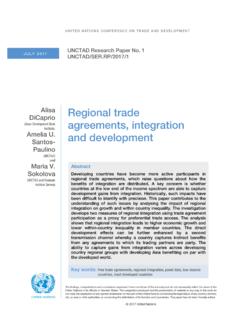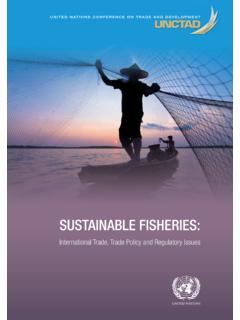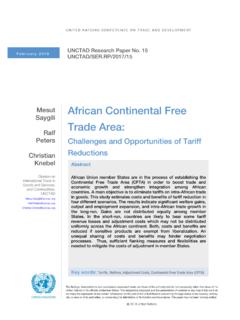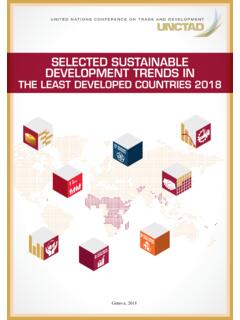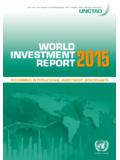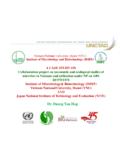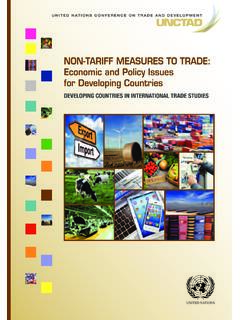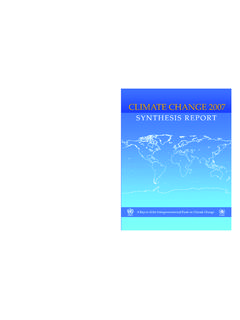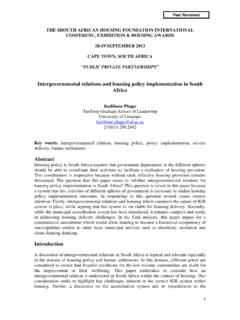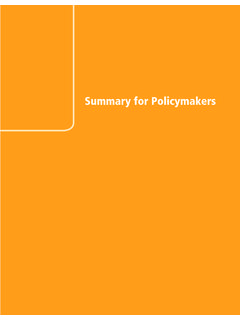Transcription of Round Table on Cross-Border Anti- Competitive …
1 12th Session of theIntergovernmental Group of Experts on Competition Law and PolicyGeneva, 9 - 11 July 2012 Round Table on Cross-Border Anti- Competitive practices : The challenges for developing countries and economies in transition A SOUTH AFRICAN PERSPECTIVE ON Cross-Border MERGER CONTROL,INTERNATIONAL CARTELS AND THE CHALLENGES FACED BY PRACTITIONERS Presentation by Zunaid MohamedA SOUTH AFRICAN PERSPECTIVE ON Cross-Border MERGER CONTROL,INTERNATIONAL CARTELS AND THE CHALLENGES FACED BY PRACTITIONERSPRESENTER: ZUNAID MOHAMEDCROSS- border MERGER CONTROL The South African Competition Act does not provide for any special provisions relating to Cross-Border merger control.
2 Competition authorities analyse Cross-Border mergers with the same criteria as used to analyse domestic mergers. The Substantive Test, applied in determining whether or not to approve, conditionally approve or prohibit a merger, is whether the merger is likely to substantially prevent or lessen competition ( SLC test ). The competition authorities will therefore consider the following issues in determining whether the SLC test is met: Barriers to entry; Level and trends of concentration; History of collusion; Degree of countervailing power; Characteristics of the market; Nature and extent of vertical integration; Whether or not a party to a merger has failed or is likely to fail; and Whether the merger will result in the removal of an effective competitor.
3 In addition to the above, the Competition Commission will have to consider the effects of the merger on the following non-competition or public interest grounds: The effect of the transaction on a particular industrial sector or region; The effect of the transaction on employment; The ability of small businesses or firms, controlled or owned by historically disadvantaged persons, to become Competitive ; and The ability of national industries to compete in international markets. If the merger does not result in any substantial lessening or prevention of competition , the merger can be prohibited on public interest grounds where it would lead to substantial public interest harm.
4 Therefore, merging parties should consider whether their transaction gives rise to any public interest concerns, and if so, to deal with these at an early stage of the transaction in order to ensure swift clearance of the merger. Below are a few case examples where Cross-Border mergers have been approved, subject to conditions based on public interest grounds. Walmart & Massmart Merger; Kansai & Freeworld Merger; Ardutch & Defy Merger. The Walmart/Massmart case in particular has changed the landscape in which mergers will be reviewed in South FOR PRACTIONERS AND THEIR CLIENTS Different jurisdictions applying different public interest tests creates uncertainty for practitioners Differences in remedies imposed by different jurisdictions, which might result in clients having to divest of different assets, in different jurisdictions Differences in decisions (approved, prohibited etc.)
5 And the time it takes to achieve approval in different jurisdictions might affect the implementation of the merger Lack of coordination amongst competition authoritiesINTERNATIONAL CARTELS Since the implementation of the Corporate Leniency Policy in South Africa the number of leniency applications have increased significantly The importance of having a leniency policy was confirmed in the Southern Pipeline Contractors Case where the tribunal stated the following - The harm caused to competition, the economy and consumers alike by cartels of such long duration is difficult if not impossible to measure. This matter also demonstrates the success of the Commission's leniency policy.
6 But for that policy, the secretive operations of this cartel and others like it would not have come to light. A Leniency Policy is the most effective tool to fight against cartels Of the 15 SADC member countries only South Africa has a Corporate Leniency Policy in place . This creates uncertainty for cartel members ( whether or not to apply for leniency). Example, a member of a cartel operating in South Africa and in a country where there is no leniency policy in place will be hesitant to apply for leniency in South Africa as the cartel member fears being prosecuted in that country where there is no leniency AND CHALLENGES FOR PRACTITIONERS Inconsistencies between leniency programmes results in many challenges for practitioners and their clients.
7 It complicates the decision of whether, when and where to apply for amnesty or leniency. Jurisdictions not having efficient and proper systems in place to protect confidential information or the lack of fully functional corporate leniency programmes creates difficulties for practitioners and is a challenge to effective co-operation in the investigation of cartels. National laws, which limit legal privilege to local attorneys orwhich exclude in-house counsel from its protection, undermines the scope of voluntary co-operation. Where this is the case a practitioner will no doubt have the challenge of extracting necessary information from client.
8 cross -jurisdictional variation in: (i) the amount of co-operation and disclosure required to qualify for amnesty or leniency; (ii) severity of potential sanctions should a party not seek amnesty or leniency; and (iii) the extent to which amnesty is available in exchange for difficult choices for clients and adds complexity in choosing a global defense

